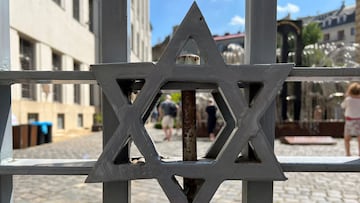Origin, why, and how Yom Kippur is celebrated: the holiest day of the year for the Jewish people
Rosh Hashanah, one of the High Holy Days, means the “head of the year” and is a celebration of the Jewish New Year.

Yom Kippur, the Day of Atonement, is the most sacred date in the Jewish calendar. It marks the culmination of the High Holy Days, a 10-day period of self-reflection and repentance that begins with Rosh Hashanah, the Jewish New Year. For many Jews around the world, it is a day set aside for fasting, prayer and reconciliation – with God, with one another, and with oneself.
Rosh Hashanah: the beginning of the High Holy Days
Rosh Hashanah, meaning “head of the year”, falls on the first day of Tishrei, the seventh month of the Hebrew calendar, usually in September or October. The holiday commemorates the creation of the world and ushers in the Aseret Yemei Teshuva – the Ten Days of Awe – a time for reflection and spiritual preparation before Yom Kippur.
Traditions include family meals featuring symbolic foods: apples dipped in honey for a sweet year ahead, round raisin challah to reflect the cycle of life, and pomegranates representing abundance. The sounding of the shofar, a ram’s horn, signals both solemnity and renewal. Candles are lit, prayers are recited in synagogue, and giving charity – known as tzedakah – plays a central role.
In 2025, Rosh Hashanah began on the evening of September 22 and ended on September 24.
Ten Days of Awe
The period between Rosh Hashanah and Yom Kippur is regarded as a time when God’s judgment is open but not yet sealed. Jews are encouraged to engage in teshuva (repentance), prayer and acts of kindness. Central to this is seeking forgiveness not only from God but also from other people – mending relationships and making amends before the Day of Atonement arrives.
Yom Kippur: origins and meaning
Yom Kippur is rooted in the Hebrew Bible, where it is described in the books of Leviticus and Numbers as a day to “afflict your souls” and atone for sins. Observed on the 10th day of Tishrei, it is the moment when the gates of repentance are believed to close and the fate of each individual for the coming year is sealed in the Book of Life.
The focus of the day is on purification, forgiveness and spiritual renewal. It is less about outward festivity than inward honesty and humility.
How is Yom Kippur observed?
The fast of Yom Kippur lasts for 25 hours, beginning before sunset and ending after nightfall the following day. It involves abstaining not only from food and drink but also from work, bathing, perfumes, wearing leather shoes and marital relations – a way of stepping back from physical comforts to concentrate on the spiritual. Children, the elderly, the ill and pregnant or nursing women are exempt from fasting, though many still participate in other ways.
Synagogues hold five services across the day. The holiday begins with Kol Nidre, a moving prayer chanted on the eve of Yom Kippur, and ends with Ne’ilah, the “closing of the gates”, when the final plea for forgiveness is made. The Book of Jonah is read, a reminder of repentance and mercy. Many worshippers wear white clothing, symbolising purity.
Related stories
Get your game on! Whether you’re into NFL touchdowns, NBA buzzer-beaters, world-class soccer goals, or MLB home runs, our app has it all.
Dive into live coverage, expert insights, breaking news, exclusive videos, and more – plus, stay updated on the latest in current affairs and entertainment. Download now for all-access coverage, right at your fingertips – anytime, anywhere.
Complete your personal details to comment